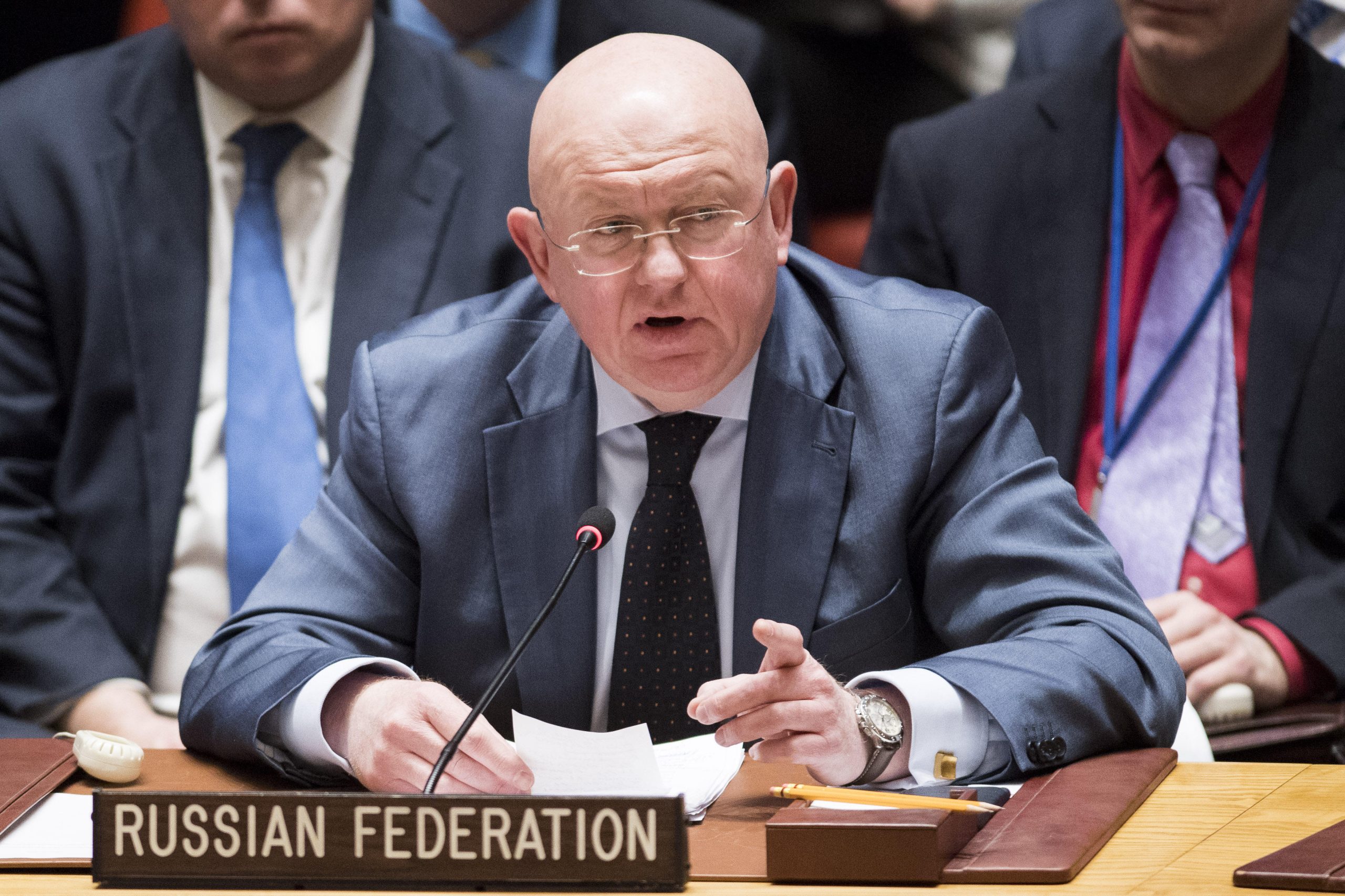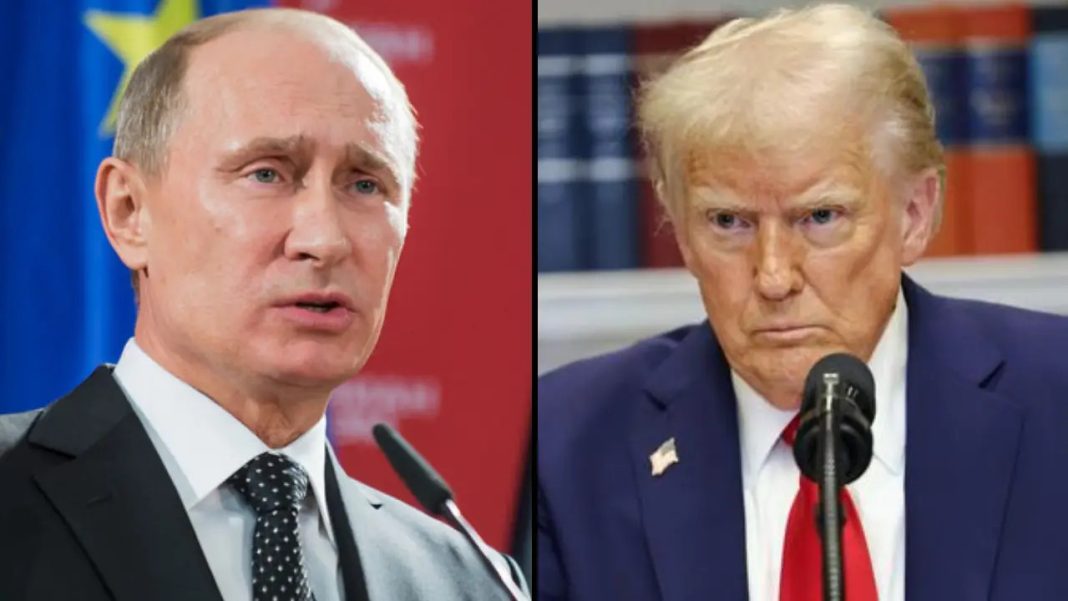The Unfolding Crisis: Trump’s Military Strikes on Iran
In a dramatic escalation of tensions in the Middle East, President Donald Trump has been cautioned by international figures that his recent military actions against Iran could lead to severe repercussions, often likened to opening a Pandora’s Box. This metaphor encapsulates the uncertainty and potential chaos that may ensue following his orders for ‘Operation Midnight Hammer,’ which involved surprise airstrikes targeting Iran’s major nuclear facilities at Fordow, Natanz, and Esfahan. The implications of these strikes reverberate through international relations, impacting alliances and security across multiple continents.

International Outcry and Warnings
In a swift response to the strikes, Russian Ambassador to the United Nations, Vassily Nebenzia, decried the actions of the United States during an emergency session of the U.N. Security Council. He emphasized that such military interventions threaten the very safety and well-being of humanity, warning that the U.S. has unleashed forces that could lead to unprecedented suffering and instability. Nebenzia described the strikes as “irresponsible, dangerous, and provocative,” articulating a deep-seated concern that the situation could spiral into a broader conflict with unpredictable consequences. The backlash was not limited to Russia; nations across the globe echoed similar sentiments, highlighting a growing apprehension surrounding unilateral military actions that bypass diplomatic avenues.

The Mechanics of the Strikes
The airstrikes, which included the utilization of advanced military technology such as the 30,000-pound GBU-57 bunker-buster bombs, marked a significant moment in military history, as these weapons had never before been deployed in combat. In his televised address, Trump characterized the operation as a “spectacular military success,” claiming that it effectively dismantled Iran’s nuclear enrichment efforts. This bold assertion has fueled a heated debate regarding the effectiveness and morality of U.S. military interventionism. Military analysts have pointed out that while the strikes may have achieved short-term tactical objectives, they could very well undermine long-term strategic stability in the region by provoking Iranian retaliation or a shift in policy among other nations wary of U.S. aggression.

Diplomatic Fallout and Response from Iran
In the wake of the strikes, U.N. Secretary-General António Guterres called for all involved parties to engage in serious negotiations concerning the Iran nuclear program, hinting at a growing recognition of the need for diplomatic solutions to avoid catastrophic outcomes. Meanwhile, the acting U.S. envoy, Dorothy Shea, defended the military action as a necessary measure to prevent Iran from obtaining nuclear weapons. In stark contrast, Iran’s representative at the U.N. accused the U.S. of obliterating diplomatic channels and stated that all American forces in the region are now viewed as legitimate targets. This shift in perception poses significant risks for U.S. personnel stationed in the Middle East, as heightened tensions may lead to increased hostility against them.
Regional and Domestic Implications
The ramifications of Trump’s decision extend beyond the immediate military consequences. Lawmakers in Tehran have responded with threats to close the Strait of Hormuz, a critical chokepoint for global oil shipments that sees approximately 20% of the world’s oil passing through it. This escalation raises the stakes not only for regional security but also for the global economy, as any disruption in this vital waterway could lead to significant fluctuations in oil prices worldwide. For instance, during past tensions in this area, oil prices have seen dramatic spikes, affecting everything from consumer gasoline prices to global market stability. Moreover, the possibility of retaliation from Iran presents a precarious scenario for U.S. forces in the region, heightening tensions and fears of an all-out conflict.
The Political Landscape in the U.S.
Back in Washington, Trump’s military actions have ignited a complex discourse within the political landscape. Former Trump advisor Steve Bannon expressed concern during his podcast about the potential for this military engagement to undermine the “America First” doctrine, suggesting that such actions could entangle the nation in a prolonged foreign commitment. Bannon’s critique reflects a broader apprehension among some factions of the Republican Party regarding the implications of U.S. military involvement abroad. Additionally, prominent Democratic leaders have seized this opportunity to criticize Trump, arguing that his administration’s approach exacerbates tensions rather than fostering peace. This polarization underscores the divide in U.S. politics regarding foreign policy — a divide that remains deeply entrenched and reflective of larger ideological battles.
Cultural Reactions and Public Sentiment
The cultural and comedic spheres have also weighed in on the unfolding crisis. Notable figures such as comedian Jon Stewart have criticized Trump for his handling of the situation, suggesting that the president’s approach might jeopardize the nation’s integrity. Stewart’s biting commentary resonates with a growing public sentiment that questions the wisdom of military intervention and its alignment with American values. Many citizens express fear over the potential for escalation, emphasizing the need for diplomacy over military might. Social media platforms have become battlegrounds for opinions, where hashtags and movements advocating for peace have gained significant traction, reflecting a populace that is increasingly wary of military actions as solutions to international disputes.
Looking Forward: The Need for Diplomacy
As the dust settles from these military actions, the international community is left grappling with the urgent question of how to proceed. The future now hinges on various factors, including Iran’s anticipated response, the evolution of domestic discourse within the U.S., and the willingness of global powers to re-engage in diplomacy. With tensions mounting, there is a critical need for a concerted effort to defuse the situation and avoid potential military escalations that could have dire ramifications not only for the Middle East but for global peace and security. Some analysts advocate for a return to negotiations, drawing from historical precedents that show diplomacy often yields more sustainable results than military intervention.
Conclusion: An Uncertain Horizon
Ultimately, Trump’s decision to strike Iran has intertwined regional disputes, great-power rivalries, and American domestic issues into a volatile crisis. The metaphor of Pandora’s Box looms large, serving as a reminder of the unanticipated dangers that military action can unleash. As the world watches closely, stakeholders must prioritize dialogue and negotiation to navigate this precarious moment in history, with the hope that reason can prevail over the chaos of conflict. The stakes are high, and the path ahead will require not only political will but a commitment to understanding the complex web of international relations that defines our current era.

















